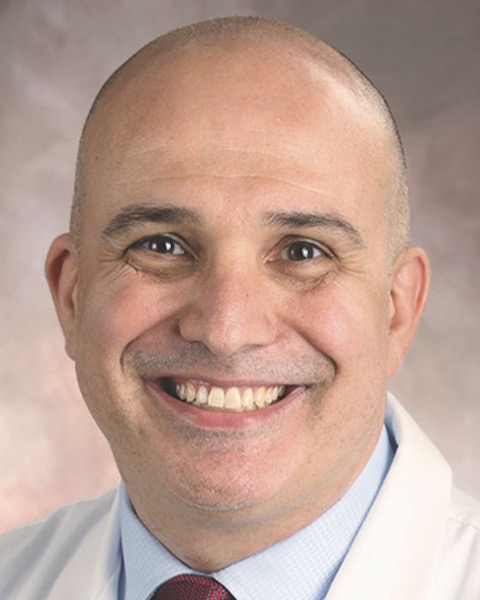Back
Purpose: Heart transplantation (HT) in patients with adult congenital heart disease (ACHD) is complicated and associated with challenging pre-transplant support, long waitlist duration, and high early post-transplant mortality. We explored if surgical and medical advances, and changes in donor allocation system have affected ACHD HT outcomes.
Methods: From the UNOS database, 2737 ACHD patients were listed for HT over 30 years (1992-2021). To explore practice and outcome trends, patients were divided into eras 1-3 (nearly equal periods before 2018), plus era 4 (2018-2021, corresponding with the new donor allocation system). Multivariable analysis of factors affecting outcomes was performed.
Results: There is steady increase in listed and transplanted ACHD patients. [Figure-a] Additionally, there is significant increase in the use of mechanical circulatory support (MCS, now∼24%), and simultaneous kidney (now∼4%) and liver (now∼16%) transplantation. [Table] While the proportion transplanted remained constant 55-60%, there was decrease in proportion delisted/died after listing (now∼10%, p=0.01) and waitlist duration (now∼102 days, p=0.01), especially in era 4. [Table] 30-days post-transplant mortality remains high (∼10%), however, it has remarkably improved starting era 3, p=0.01. Current survival at 1 year and 10 years is 85% and 65%, respectively, with improvement mainly related to decreased early death. [Figure-b] On multivariable analysis, factors associated with 1 year mortality were lower eGFR (OR=1.005, p=0.0617), bilirubin (OR=0.814, p=0.0005), mechanical ventilation (OR=2.932, p=0.0134), and era (OR=1.729, p=0.0068). MCS and simultaneous organ transplantation were not significant.
Conclusion: HT in ACHD patients is increasing, along with added complexity, higher usage of pre-transplant MCS and simultaneous organ transplantation. Despite that, more complex patients don’t experience worse outcomes. Early mortality improved but remains high. New donor allocation system allowed shorter waitlist duration and higher proportion transplanted without significantly altering early mortality. Further research is needed to optimize post-transplant management, and to identify ideal HT plus/minus multi-organ transplant candidates, best timing to list for HT, and optimal pre-transplant support.
Identify the source of the funding for this research project: Institutional
Congenital
Trends And Outcomes Of Heart Transplantation In Adults With Congenital Heart Disease
Sunday, January 22, 2023
3:00 PM – 3:12 PM PT
Location: San Diego Convention Center, Room 30ABC

Bahaaldin Alsoufi, n/a (he/him/his)
Chief of Pediatric Cardiac Surgery
University of Louisville
Prospect, Kentucky, United StatesDisclosure(s): No financial relationships to disclose
Purpose: Heart transplantation (HT) in patients with adult congenital heart disease (ACHD) is complicated and associated with challenging pre-transplant support, long waitlist duration, and high early post-transplant mortality. We explored if surgical and medical advances, and changes in donor allocation system have affected ACHD HT outcomes.
Methods: From the UNOS database, 2737 ACHD patients were listed for HT over 30 years (1992-2021). To explore practice and outcome trends, patients were divided into eras 1-3 (nearly equal periods before 2018), plus era 4 (2018-2021, corresponding with the new donor allocation system). Multivariable analysis of factors affecting outcomes was performed.
Results: There is steady increase in listed and transplanted ACHD patients. [Figure-a] Additionally, there is significant increase in the use of mechanical circulatory support (MCS, now∼24%), and simultaneous kidney (now∼4%) and liver (now∼16%) transplantation. [Table] While the proportion transplanted remained constant 55-60%, there was decrease in proportion delisted/died after listing (now∼10%, p=0.01) and waitlist duration (now∼102 days, p=0.01), especially in era 4. [Table] 30-days post-transplant mortality remains high (∼10%), however, it has remarkably improved starting era 3, p=0.01. Current survival at 1 year and 10 years is 85% and 65%, respectively, with improvement mainly related to decreased early death. [Figure-b] On multivariable analysis, factors associated with 1 year mortality were lower eGFR (OR=1.005, p=0.0617), bilirubin (OR=0.814, p=0.0005), mechanical ventilation (OR=2.932, p=0.0134), and era (OR=1.729, p=0.0068). MCS and simultaneous organ transplantation were not significant.
Conclusion: HT in ACHD patients is increasing, along with added complexity, higher usage of pre-transplant MCS and simultaneous organ transplantation. Despite that, more complex patients don’t experience worse outcomes. Early mortality improved but remains high. New donor allocation system allowed shorter waitlist duration and higher proportion transplanted without significantly altering early mortality. Further research is needed to optimize post-transplant management, and to identify ideal HT plus/minus multi-organ transplant candidates, best timing to list for HT, and optimal pre-transplant support.
Identify the source of the funding for this research project: Institutional
Disclosure(s):
Bahaaldin Alsoufi, n/a: No financial relationships to disclose
